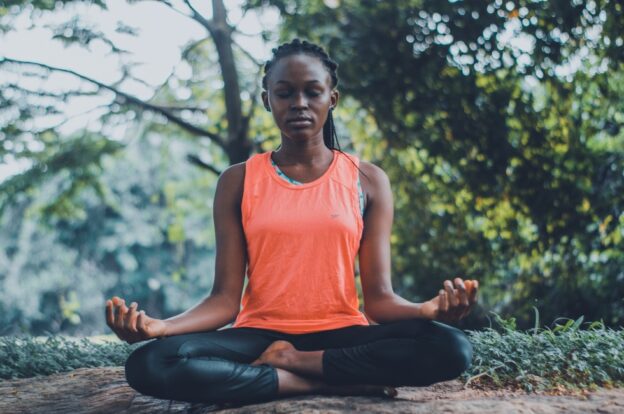Many people across the country struggle with coping with anxiety. Many of these individuals suffer in silence because they don’t realize that there are treatment options available and that they don’t have to continue to feel this way. Some people try to find relief by self-medicating and turning to drugs or alcohol to numb the pain. In reality, these substances can just make anxiety worse. The more that an individual grows dependent upon these things, the less they are able to control their anxiety on their own.
Anxiety can be a very debilitating problem that can affect the quality of one’s life and their ability to function during daily activities. The good news is that there are treatment methods available that can dramatically reduce one’s symptoms and allow them to feel like themselves again. In addition, there are things that you can do on your own to go about coping with anxiety without substance use.
How Do I Know When It Is Time to Get Help?
Everyone experiences nerves from time to time; this is normal. So, how do you differentiate between healthy nerves and an actual anxiety disorder? There are some questions you can ask yourself about how anxiety affects you. Consider the following:
- Do your worries go beyond the point of rationality and keep you from thinking clearly?
- Do your worries keep you up at night when you’re trying to sleep?
- Do your worries affect your appetite?
- Do you find that you cannot control your worries, even when they are taking a toll on your personal or professional life?
- Do your worries cause you problems while concentrating or trying to complete the task at hand?
- Do your worries cause you to become restless, tense, or on edge?
- Have your worries affected your relationships with others?
If you answered “yes” to any of these questions, then you may be struggling with an anxiety disorder and need professional help. Even if you are still on the fence about whether you have a disorder or not, it is still well worth it to reach out for help just to make sure. After all, there is nothing to lose.
What Can I Expect From Seeking Professional Help for My Anxiety?
It can be scary to open up about your anxiety to someone else for the first time, even if it is your own doctor. It may comfort you to know that anxiety is a very, very common issue that many people deal with. You have nothing to be ashamed of or embarrassed about. When speaking with your primary care physician about your condition, try to be as honest as possible and don’t hold back about how you have been feeling. They will likely ask you some questions to get a better idea about how you’re feeling.
In the case that you do have an anxiety disorder, your doctor can provide you with a diagnosis and can help determine what the next form of treatment may look like for you. For many people, the first step upon diagnosis is working with a therapist on a regular basis. They can help you work through your emotions and develop new and more productive coping mechanisms for stress.
In some cases, your doctor may prescribe you medication to help alleviate your symptoms. It is best to take this medication exactly as prescribed in order to experience the best results. Your doctor may also recommend that you attend therapy while simultaneously taking prescription medication to alleviate your symptoms.
What Else Can I Do to Go About Coping With Anxiety?
A major factor that can influence how you feel on the inside is how you’re taking care of yourself on the outside. If you’re eating unhealthy, not getting good sleep, or skipping your workout, your mental health will begin to suffer. Make sure that you avoid greasy food and excess sugar and try to eat healthy, balanced meals. Try to fit some form of exercise into your daily schedule, even if it’s no more than 30 minutes. If you can’t make it to the gym, try taking a walk around your neighborhood or doing a quick at-home workout. There are many tutorials online that you can follow. Finally, be sure to get at least eight hours of sleep a night.
Self-Care
Aside from traditional methods, there are also some things you can do on your own to help manage your anxiety. One of the biggest things is to practice self-care. Self-care involves doing whatever is necessary to take care of your mental, physical and emotional health. Some great examples of practicing self-care include:
- Take a long break from social media
- Spend plenty of time out in nature without distraction
- Avoid spending too much time online
- Spend quality time with a loved one
- Practice yoga or some form of meditation
- Listen to calming music
- Watch an episode of your favorite show
Anxiety is a very common issue that can affect anyone of any age or background. It can be very debilitating and can affect one’s ability to keep up with day-to-day responsibilities. Some people turn to substance use as a way to cope. Substance use can actually make one’s anxiety worse. Instead, it is better to seek out professional treatment. This can be done by visiting your primary care provider. They may recommend prescription medication or therapy to alleviate your symptoms. It’s also important to take care of your physical health and practice self-care. If you’re struggling with your mental health, our team at The Ho Tai Way can help. Call (714) 881-8931 today to learn more.









